Snapshots Taken While Driving Home February 13th, 2012

We on our way home from doing errands and all of a sudden the sky turned black. It was like being in the mid-west. Not a lot of rain but fantastic cloud formations. We even had a rainbow!

On the 405 going north just about 5 miles from Los Alamitos
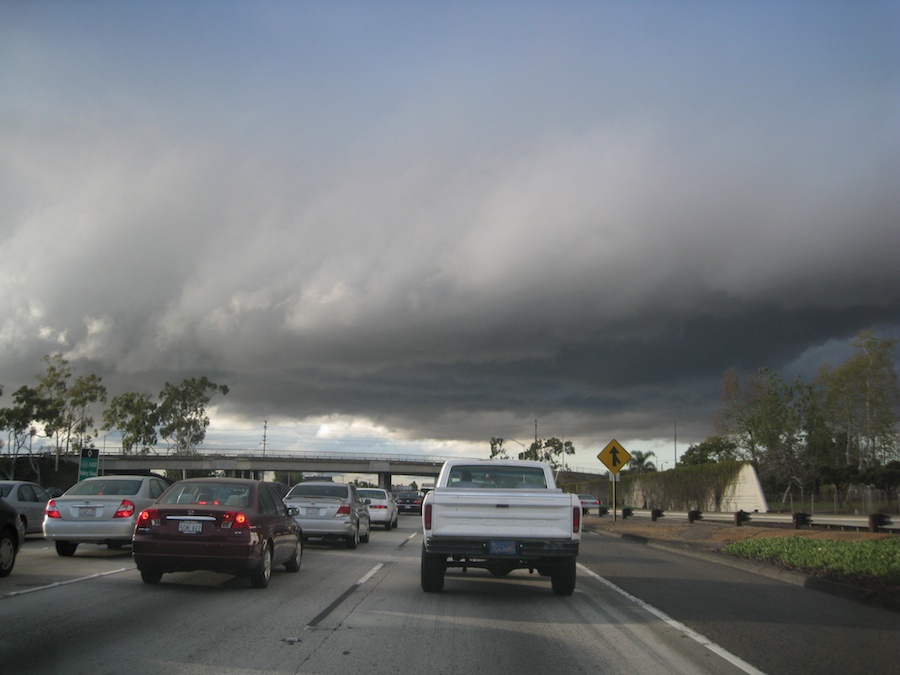
The dark cloudes seem to be hovering over our house
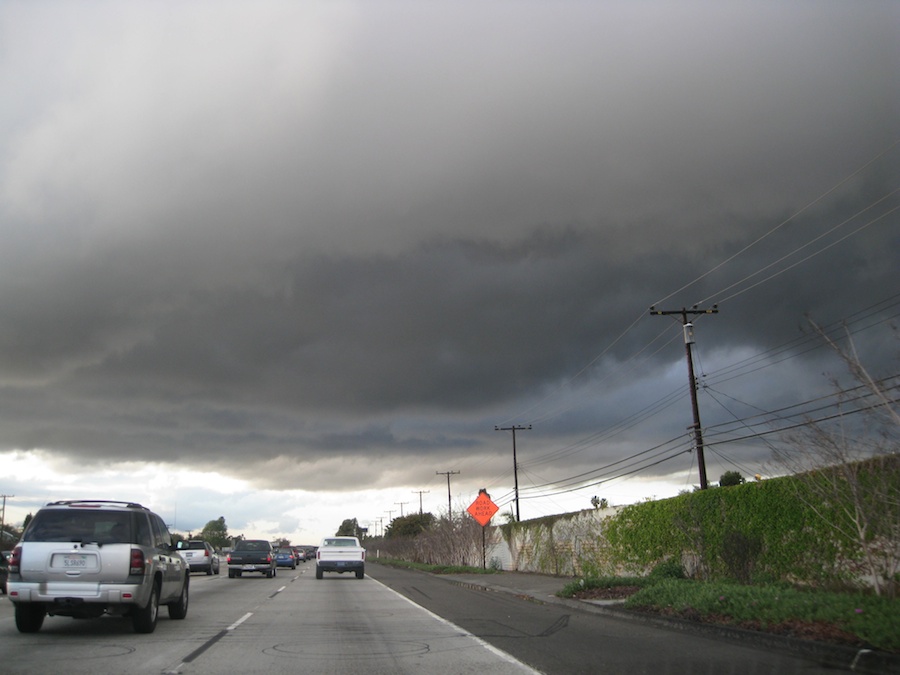
Amazing... Blue skies and thunder clouds
Did You Know? - Storms are created when a center of low pressure develops, with a system of high pressure surrounding it. This combination of opposing forces can create winds and result in the formation of storm clouds, such as the cumulonimbus. Small, localized areas of low pressure can form from hot air rising off hot ground, resulting in smaller disturbances such as dust devils and whirlwinds.
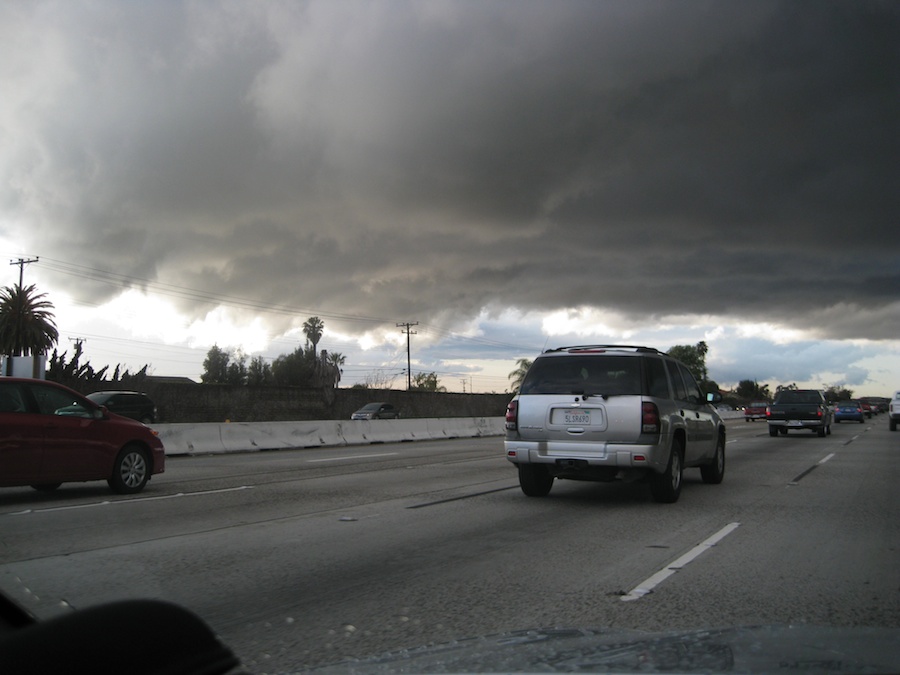
Hail stay away

It was very dark
Did You Know? - Thunderstorm - A thunderstorm is a type of storm that generates lightning and the attendant thunder. It is normally accompanied by heavy precipitation. Thunderstorms occur throughout the world, with the highest frequency in tropical rainforest regions where there are conditions of high humidity and temperature along with atmospheric instability.
These storms occur when high levels of condensation form in a volume of unstable air that generates deep, rapid, upward motion in the atmosphere. The heat energy creates powerful rising air currents that swirl upwards to the tropopause. Cool descending air currents produce strong downdraughts below the storm. After the storm has spent its energy, the rising currents die away and downdraughts break up the cloud. Individual storm clouds can measure 2–10 km across.
We Drive Into Our Neighborhood And Suddently A Large Rainbow...
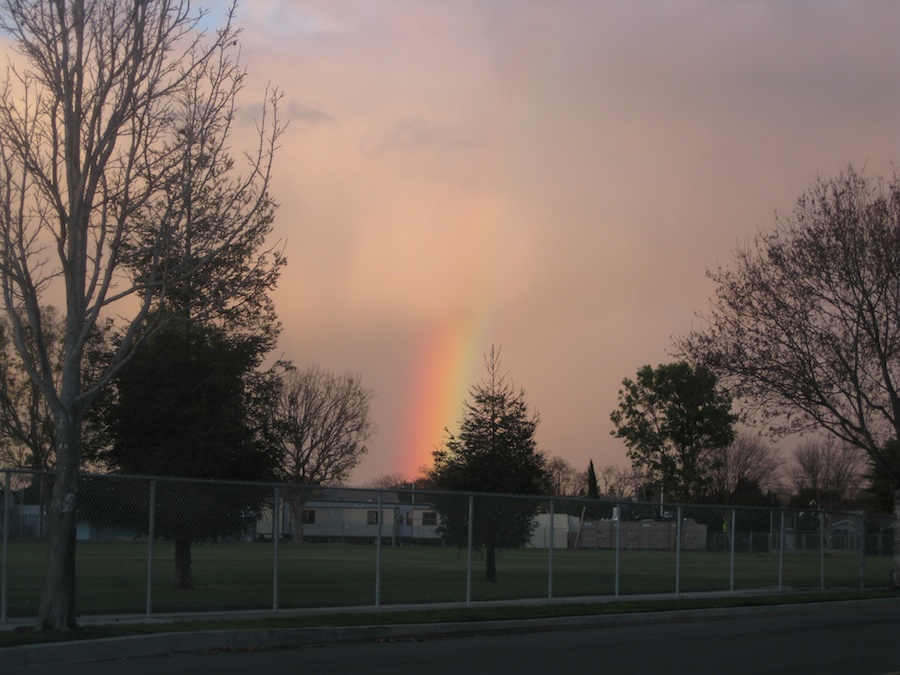
Where is our bucket of gold???
Did You Know? - A rainbow is an optical and meteorological phenomenon that causes a spectrum of light to appear in the sky when the Sun shines on to droplets of moisture in the Earth's atmosphere. It takes the form of a multicoloured arc. Rainbows caused by sunlight always appear in the section of sky directly opposite the sun.
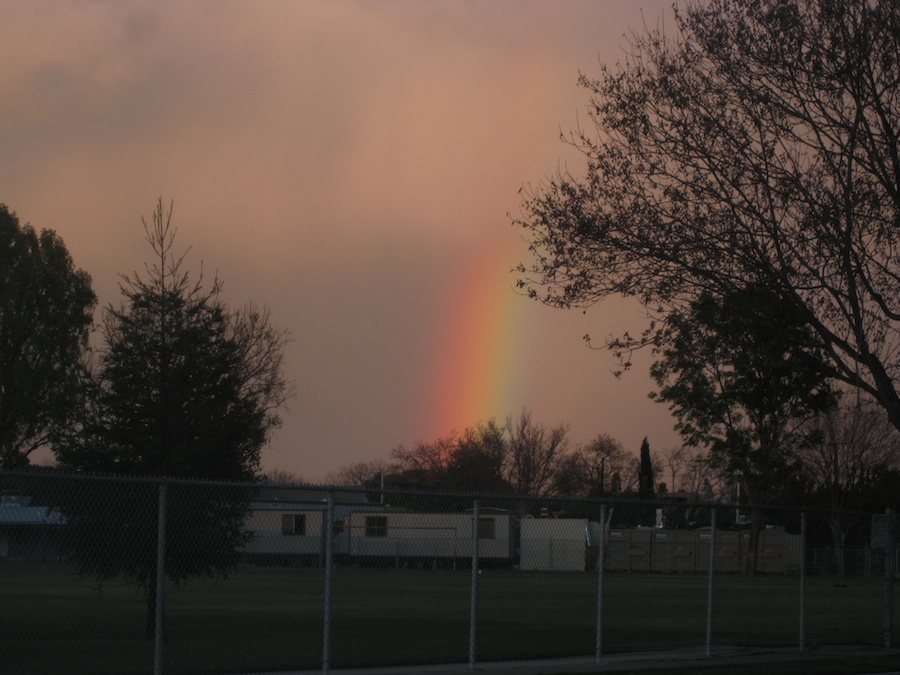
It was quite a sight and it was visible high into the sky
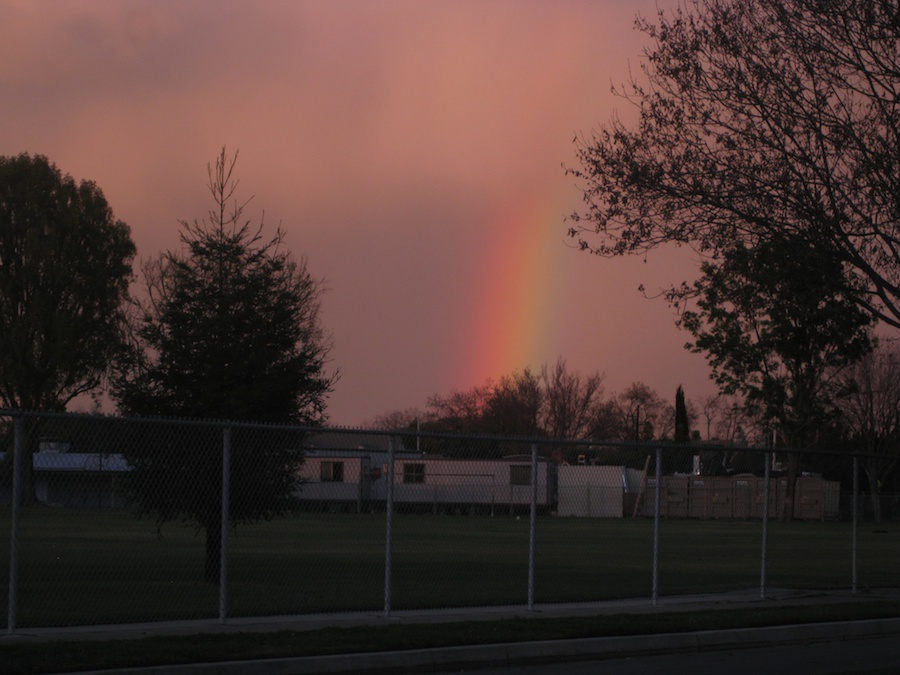
What... No end of the rainbow??
Did You Know? - The rainbow is not located at a specific distance, but comes from any water droplets viewed from a certain angle relative to the Sun's rays. Thus, a rainbow is not a physical object, and cannot be physically approached. Indeed, it is impossible for an observer to manoeuvre to see any rainbow from water droplets at any angle other than the customary one of 42 degrees from the direction opposite the Sun.
Even if an observer sees another observer who seems "under" or "at the end" of a rainbow, the second observer will see a different rainbow further off-yet, at the same angle as seen by the first observer.

Very pretty

Did You Know? - A rainbow spans a continuous spectrum of colours—there are no "bands". The apparent discreteness is an artefact of the photopigments in the human eye and of the neural processing of our photoreceptor outputs in the brain. Because the peak response of human colour receptors varies from person to person, different individuals will see slightly different colours, and persons with colour blindness will see a smaller set of colours. However, the seven colours listed below are thought to be representative of how humans everywhere, with normal colour vision, see the rainbow.

Starting to go away as the clouds move through

Facing fast...


Sound: Etta James Does "Stormy Weather"